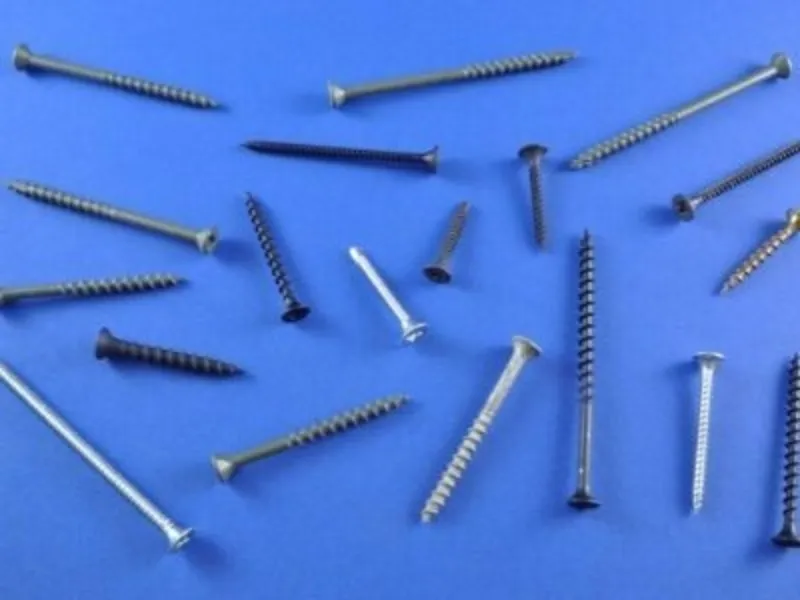
In building or woodworking, utilizing the right screw is key. It can mean the difference between a solid job and one that could have been better. Whether you’re putting up drywall or joining wood, the right screw matters a lot. This article goes over the main differences between drywall screws and wood screws, including how they’re made, what they’re best for, and where they might fall short.

Choosing The Right Screw: Drywall or Wood?
As we drill down into this, you'll find that choosing between drywall screws and wood screws goes beyond just the surface. We'll discuss the composition, strength, and preferred applications of both types. This information will help your decision process and ensure that your next project stands the test of time.
The Pros and Cons: Wood Screws vs. Drywall Screws
Drywall Screws
Drywall screws are known for their sharp point and high thread count that makes them easy to penetrate drywall without a pilot hole. With a bugle head, they sit flush with the drywall for a smooth finish. Available in various lengths to suit different drywall thicknesses, drywall screws provide efficiency and a clean finish for simple installation tasks. Their secure hold without damaging the drywall surface is advantageous for most projects.
Characteristics:
Thread Design: Drywall screws have a sharp, pointed tip and widely spaced threads. This design helps them penetrate and grip the drywall and studs effectively.
Head Design: They typically feature a bugle head which helps in preventing tearing of the drywall paper.
Material: Drywall screws are often made of hardened steel which can sometimes make them brittle.
Pros:
Cost-effective: Drywall screws tend to be more affordable compared to many wood screws.
Reduced Stripping: The unique design of the threads reduces the likelihood of stripping.
Cons:
Brittleness: The hardening process makes drywall screws more brittle, so they may break more easily under stress.
Corrosion: These screws may be more prone to corrosion, which is a significant drawback when used in moisture-prone areas.
Wood Screws
Wood screws are the go-to choice for woodworking projects. Specifically designed for wood, wood screws have a tapered shaft and a sharp point to easily penetrate wood without splitting it. They have a less aggressive thread compared to drywall screws, which helps them grip the wood without causing damage.
Characteristics:
Thread Design: Wood screws have a coarser pitch and are tapered for a secure grip in wood.
Head Design: They come in various head designs including flat head, round head, and raised head, for different applications.
Material: Typically made of softer metal, wood screws are less brittle compared to drywall screws.
Pros:
Strength: Wood screws are less prone to breaking, and provide a strong hold in wood applications.
Versatility: The variety of head designs and sizes make wood screws versatile for different projects.
Cons:
Cost: Wood screws may be a bit pricier, especially if you're after top-notch quality materials like brass or stainless steel.
Pre-drilling: Sometimes, it's necessary to pre-drill to avoid splitting the wood.
Applications and Considerations
Drywall Screws:
Drywall screws are the go-to choice for attaching drywall panels due to their design and cost-effectiveness. However, their brittleness makes them less suitable for applications involving high stress or where structural integrity is paramount.
Wood Screws:
Wood screws excel in woodworking projects due to their strength and versatility. They are the preferred option for applications requiring a strong hold and where the screw head's appearance is essential.
Upgrade Your Toolbox: Visit Fastener Systems for Premium Wood and Drywall Screws
Are you in need of high-quality drywall screws, wood screws, or other fastening solutions? Look no further than Fastener Systems. With a wide variety of fasteners to choose from, we have the right products to meet your project needs.
Contact us today for more information and a fast quote!


